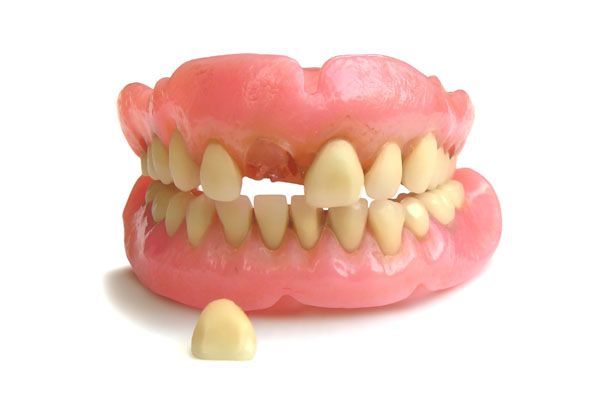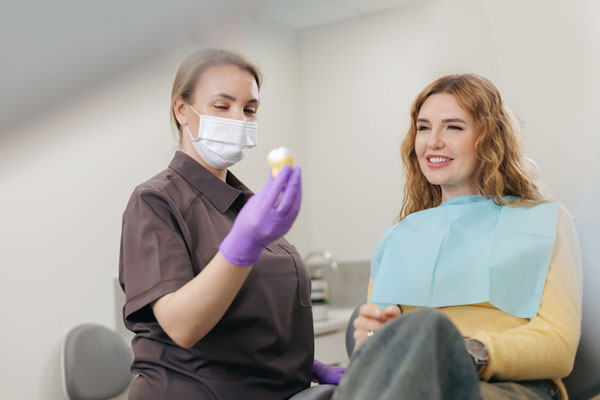 Bad breath can feel uncomfortable and embarrassing, even more so when it does not seem to go away. If you are struggling with chronic bad breath, a general dentist can help. Many treatment options are available, some of which take place at home. In this article, we will explore the common causes of bad breath and how to treat it.
Bad breath can feel uncomfortable and embarrassing, even more so when it does not seem to go away. If you are struggling with chronic bad breath, a general dentist can help. Many treatment options are available, some of which take place at home. In this article, we will explore the common causes of bad breath and how to treat it.
Common causes of bad breath
Also known as halitosis, bad breath comes in many forms. Regardless of the odor, bad breath typically starts at the back of the mouth. The most frequent causes of bad breath include the following:
- Eating certain types of food, such as onions.
- Practicing poor dental hygiene, such as irregular brushing.
- Dry mouth, including as a side effect of certain prescribed medications.
- Oral infections, such as infected surgical wounds, tooth decay, and gum disease.
- General health conditions, such as acid reflux.
- Smoking and using other tobacco products.
Dental treatments for bad breath
General dentists may take several approaches to treat bad breath. It is possible to reverse minor cases of bad breath with professional care and at-home oral hygiene. Take a look at the following dental treatments for halitosis.
Tongue scraping
Bacteria left on the tongue (such as when it is not brushed away) can quickly multiply and cause bad breath. Unfortunately, most of the bacteria responsible for halitosis are often situated at the very back of the tongue. Therefore, a general dentist can insert a tongue scraper far into the mouth to remove bacteria from those hard-to-reach areas; this process is known as a "deep scrape" on the tongue.
It is also recommended that the patient implement regular tongue scraping as part of their daily oral hygiene routine. This can be done with a toothbrush,at-home tongue scraper, or even a clean metal spoon. In addition, a general dentist may recommend other at-home dental practices to help with bad breath.
Antibacterial mouthwash and toothpaste
As mentioned, bad breath can be traced back to an overgrowth of bacteria in the mouth. Using antibacterial toothpaste can help kill this bacteria. A toothbrush cannot reach every area of the mouth, however. For this reason, a general dentist may recommend using an antibacterial mouthwash between appointments to clean the areas where neither a toothbrush nor tongue scraper can reach.
Cavity fillings
Tooth decay, or cavities, can also cause bad breath. A general dentist will fill the cavity to address bad breath and ensure the decay does not progress. If left untreated, the decay may reach the tooth's living tissue or pulp, causing a bigger problem. A root canal is required to remove an infected pulp.
Deep gum cleaning
Bacteria, plaque, and tartar can hide within the gum pockets (the spaces between the teeth and the gums) and lead to halitosis. If left alone, tooth decay and gum disease will also result. A general dentist can rid the pockets of all these issues with a deep gum cleaning. Often, this can be done in the same appointment as a regular teeth cleaning.
Take the first step toward fresh breath
No one should have to live with chronic bad breath. Let our general dentist help you achieve fresher breath with proven dental procedures. Call our office to learn more.
Request an appointment or call Chesterfield Dentist at 804-412-0867 for an appointment in our Chester office.
Recent Posts
A general dentist shared some ways to help prevent bad breath. This is a topic no one wants to discuss. Bad breath happens to everyone at one point or another. If you take proper precautions, you can avoid having bad breath. We should openly talk about this taboo topic. The more we talk about it, the…
Most general dentists agree that having a broken tooth is more serious than it gets credit for. It is easy to overlook damage, especially if no pain is associated with it or the damage is not visible. However, leaving a damaged tooth untreated can result in serious consequences. This article will discuss four ways our…
Besides ourselves, one other person plays a highly important role in maintaining our oral health, our general dentist. You see, the dentist is responsible for much of the work that goes into our mouths, and without them, most of us would be at a loss as to what to do to protect our teeth, tongue,…


